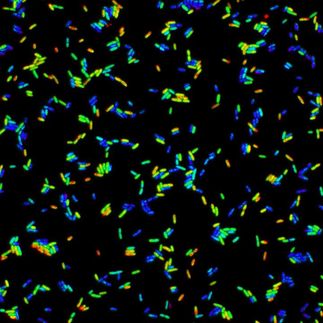Basilea reports positive results from first clinical phase I study with its novel antibiotic BAL30072
Basilea Pharmaceutica Ltd. reported positive top-line results from the first clinical phase I study with its antibiotic BAL30072 which is being developed for the treatment of infections caused by multidrug-resistant Gram-negative bacteria. BAL30072 was safe and well tolerated in this single-ascending-dose study.
The double-blind randomized clinical phase I study investigated the safety, tolerability and pharmacokinetics of single ascending doses of BAL30072 in healthy volunteers. BAL30072 was safe and well tolerated at all dose levels. It displayed dose-proportional plasma levels as well as linear pharmacokinetic properties. Detailed study results will be presented at upcoming scientific conferences.
"We are delighted with the good safety and tolerability of BAL30072 demonstrated in this first study in man, which is in line with our preclinical observations," said Dr. Anthony Man, CEO of Basilea Pharmaceutica Ltd. "These results support the potential of BAL30072 as a new treatment option for severe and life-threatening infections caused by multidrug-resistant Gram-negative bacteria, where currently very limited therapeutic options exist. We are committed to addressing the significant medical challenge arising from the rapid global spread of new emerging Gram-negative superbugs and we will be further advancing the phase I program with this promising drug this year."
Clinically important multidrug-resistant Gram-negative pathogens such as Pseudomonas aeruginosa, Acinetobacter spp., Klebsiella spp. and Enterobacter spp. are associated with prolonged hospital stays, higher healthcare costs and increased mortality. These pathogens may cause serious and life-threatening infections such as sepsis, severe lung or complicated urinary tract infections. In a recent study which involved thousands of patients in intensive care units around the world, Gram-negative pathogens were found in about 60 percent of patients tested positive on bacterial infections.
Most read news
Other news from the department research and development

Get the life science industry in your inbox
By submitting this form you agree that LUMITOS AG will send you the newsletter(s) selected above by email. Your data will not be passed on to third parties. Your data will be stored and processed in accordance with our data protection regulations. LUMITOS may contact you by email for the purpose of advertising or market and opinion surveys. You can revoke your consent at any time without giving reasons to LUMITOS AG, Ernst-Augustin-Str. 2, 12489 Berlin, Germany or by e-mail at revoke@lumitos.com with effect for the future. In addition, each email contains a link to unsubscribe from the corresponding newsletter.





















































